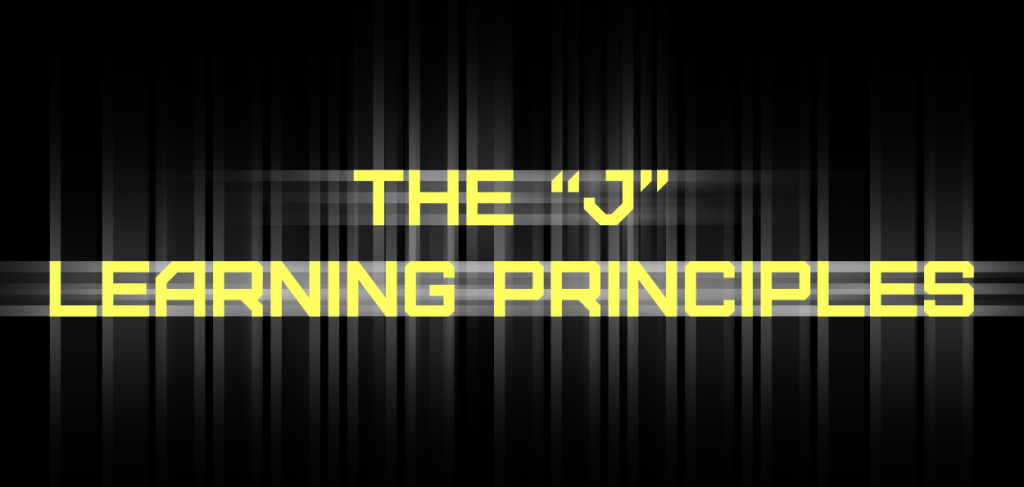What’s the best way to learn? Observing these learning principles can make learning events and experiences value adding.
Experience is the best teacher, they say, albeit costly and at times painful. But we don’t have to go thru the hassle if we recognize the right learning principles. Same learning gains as experience, minus the pain.
Am not sure if I already have a failing memory, or this is but normal for people in their mid-age, haha! A few days back, I lost a substantial amount of money, dumb me, am not even sure how it got lost. Now the dumber part is, I wasn’t aware until a day after.
Am I cool? Nope! The only better choice is learn from this incident than beat my self.
From this unfortunate experience, allow me to share the learning principles observed by Jesus – workplace learning facilitators, mentors and life coaches can relate to this.

What is learning and what’s the best way to learn? Is acquiring knowledge enough or application of what we learned (wisdom) is equally important?
Before we proceed, let’s differentiate “knowledge’ from “wisdom”.
Knowledge is the information we gain through formal and informal education, while wisdom is the application of knowledge to a specific situation.
Illustration: Assuming a Yolanda (international name Haiyan) like super typhoon will hit Manila in three days (Knowledge), both government and residents will take precautionary measure to reduce, if we can’t completely guarantee zero casualty and loss of property. (this is wisdom, the application of knowledge)
Wisdom is also the recognition and application of life principles, natural and spiritual laws. For example, the law of gravity. It doesn’t matter if one believes on it or not, it’s there. To a fool, he shout all he wants that he don’t believe on gravity, but if he decides to jump-off a 10 story building, gravity will make him realize a deadly lesson. Those who recognize this law and applied it, have made technological breakthroughs, like air travel.
As former US President Jimmy Carter said “We must adjust to changing times and still hold to unchanging principles“.
Illustration: The principle of seed time and harvest, both a natural and spiritual law. In the natural, the farmers knew how to work with this principle in light of nature’s different seasons. In the spiritual, this can be applied to the decisions we make. The choices we made are like seeds that we sow, whether sound or not. When harvest time comes, we will also reap the consequences of our actions. This can be in the form of reward or otherwise.
However, because of the “time gap” between seed time and harvest season, people thought the decisions they made had nothing to do with their future. Bad decisions should be uprooted; otherwise, the coming consequence is inevitable. On the other hand, though good decisions are often criticized and the person maligned, in due time, the reward for such action is also inevitable.
Learning is a process involving a lot of factors. But success is dependent on the learner himself. For maximum added value of learning and skills enhancement, let’s look at the learning principles observed by Jesus:
The “J” (Jesus) Learning Principles
Listen or learn with the right attitude.
The Parable of the Sower
Mark 4
1 Again Jesus began to teach by the lake. The crowd that gathered around him was so large that he got into a boat and sat in it out on the lake, while all the people were along the shore at the water’s edge.
2 He taught them many things by parables, and in his teaching said:
3 “Listen! A farmer went out to sow his seed.
4 As he was scattering the seed, some fell along the path, and the birds came and ate it up.
5 Some fell on rocky places, where it did not have much soil. It sprang up quickly, because the soil was shallow.
6 but when the sun came up, the plants were scorched, and they withered because they had no root.
7 Other seed fell among thorns, which grew up and choked the plants, so that they did not bear grain.
8 Still other seed fell on good soil. It came up, grew and produced a crop, multiplying thirty, sixty, or even a hundred times.” 9Then Jesus said, “He who has ears to hear, let him hear.”
The effectiveness of a person’s listening skill is dependent on his attitude. People can listen without understanding. If applied in the context of learning, the person who passively listen learned nothing.
In the story presented above, Jesus taught people whenever opportunity presents itself. Worth mentioning also, is the fact that it is the people who “sought” (attitude) Jesus to learn.
Similarly, learning opportunities thrive in our environment, from formal education and informal sources like day to day experiences, relationships, career, books and multimedia. But if we are not open minded and receptive, these available information will not be of use.
Put your newly acquired knowledge into use
A Lamp on a Stand
Mark 4
21 He said to them, “Do you bring in a lamp to put it under a bowl or a bed? Instead, don’t you put it on its stand?
22 For whatever is hidden is meant to be disclosed, and whatever is concealed is meant to be brought out into the open.
23 If anyone has ears to hear let him hear.”
24″Consider carefully what you hear,” he continued. “With the measure you use, it will be measured to you—and even more.
25Whoever has will be given more; whoever does not have, even what he has will be taken from him.”
New information + application = skills enhancement
Apply every new learnings you acquired, lest this new found treasure will not be of benefit.
In corporate, management invests a lot for the training and development of its employees. Training intervention, however, is useless if the culture and policies of the company is not aligned to the expected new behavior. The investment is gone for good and the changed behavior is not attained.
Recognize that God is involve in the learning process
The Parable of the Growing Seed
Mark 4
26 He also said, “This is what the kingdom of God is like. A man scatters seed on the ground.
27 Night and day, whether he sleeps or gets up, the seed sprouts and grows, though he does not know how.
28 All by itself the soil produces grain—first the stalk, then the head, then the full kernel in the head.
29 As soon as the grain is ripe; he puts the sickle to it, because the harvest has come.”
Recognize that God is the foundation of learning principles, thus, the cause of growth. The multiplying effect, however, is dependent in the learner’s attitude– openness and promptness to apply the new knowledge and skill. Hence, not all can experience equal growth. Some people can even decimate growth.
The learning principles we just discussed encompass everything. A technical expertise can not be attained unless a principle is applied consistently. Experience on a certain skill is good for our market value.
For investors, it is wise to first address the culture and systems of the company to make it conducive to learning. Then we can invest on training and development program.
For line managers, a training program is not the answer to every behavioral problem of the employee. Instead, ensure that the company guidelines are implemented so that employee behavior is aligned with the company mission and vision. Give feedback and suggest if the guidelines are not in sync with reality.
HR practitioners, as an strategist, can bridge the gap between corporate mission/vision and reality. Applying different interventions to ensure the target behavior is attained.
To recap, let’s go back to our original question, “what is learning and how do we learn?”
Learning is a process involving both information upload and data application. It applies to two aspects of competencies– knowledge and skill, and in life in general– wisdom. However, the learning principle of Jesus must be observed to maximize learning and ensure success of a training/learning program.
- Seek to learn, listen with an “A”
- Immediately apply the knowledge you learned
- Recognize that God is involved in the learning process.
The money I lost can still be earned, but the hard lessons learned can be lost forever if I will not immediately correct my mistake (application of knowledge).





